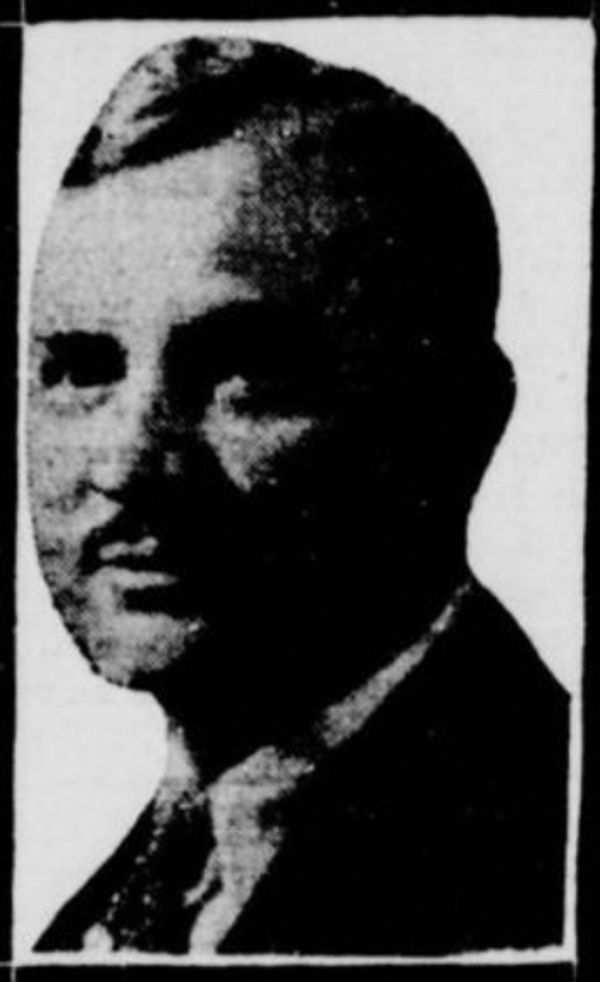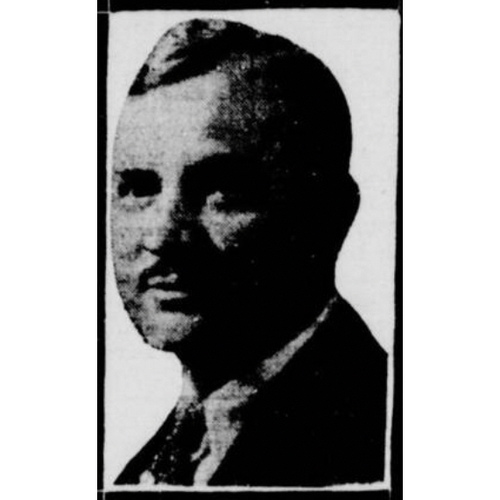
Source: Link
Trudeau, Joseph-Charles-Émile (baptized Joseph), lawyer and businessman; b. 5 July 1887 in Saint-Michel, Que., son of Joseph Trudeau, a farmer, and Malvina Cardinal; m. 11 May 1915 Grace Elliott in Montreal, and they had one daughter and three sons, the first of whom died in infancy, and the second of whom was Pierre Elliott Trudeau*; d. 10 April 1935 in Orlando, Fla, and was buried in Saint-Rémi, near Napierville, Que.
Joseph-Charles-Émile Trudeau, known to his friends as Charlie or Charley, was the son of a barely literate father and an ambitious mother. He left the family farm to pursue his education at the Jesuits’ Collège Sainte-Marie in Montreal, where he excelled as a student in the classical program. In 1909 he began to study law at the Montreal branch of the Université Laval. His class notes suggest that he was highly intelligent, and show that he took examinations in Latin and shared many of the opinions of his instructors, including his beliefs that “Canada is not ripe for independence” and war destroyed “the arts, the sciences, the civilization.” While at university, he developed into what journalist George Radwanski called a “wiry little extrovert,” and was drawn to gambling and Montreal’s vibrant social life. Trudeau graduated with an llb in the spring of 1912 and was admitted to the Montreal bar in September.
When the First World War broke out in 1914, Trudeau was practising law in Montreal at a small firm with Charles-Édouard Guérin and courting Grace Elliott, the daughter of Phillip Armstrong Elliott, a prosperous local businessman. Trudeau was already a man of some property, and Grace signed a marriage contract with him before their wedding on 11 May 1915. While the law firm prospered, Trudeau became attracted to business, and in 1921 he founded the Automobile Owners’ Association to benefit from the rapid increase in the use of motor vehicles in Montreal; the number of cars in Quebec would grow from 41,562 in 1920 to about 100,000 five years later. From its headquarters on Rue Saint-Denis, the company ran a small chain of gasoline stations and a club that provided services to automobile owners for a yearly fee. The business flourished, and by the early 1930s the association had 30 service stations and over 15,000 members. In 1932 Harry Michener Snyder, an agent buying up independent oil companies for the giant Imperial Oil, settled with Trudeau on a price of $1,150,000 for his business. Snyder collected a fee of $150,000 for his brokerage work. Trudeau received the $1 million upon which he had insisted, and the next year he took the position of general manager of the new subsidiary company, Champlain Oil Products Limited, with an annual salary of $20,000.
Trudeau immediately created trusts for his wife and their children and then began to diversify his own holdings. He invested in real estate in Montreal and stocks (notably those of the Sullivan Gold Mine Company). He also became a major investor in Belmont Park, the city’s main amusement park, and the principal shareholder and vice-president of the Montreal Royals baseball club. His partners in the amusement and sports fields, such as Hector-Hubert Racine and J. Roméo Gauvreau, were regulars at the francophone Club Saint-Denis. There, Charlie Trudeau was known as a bon vivant, a reputation that endured in the memory of his children. He was a friend of the leading, and controversial, Conservative nationalist politician Camillien Houde*, and his own nationalism was reflected in his membership on the board of Le Devoir newspaper [see Henri Bourassa*], for which he was a financial counsellor. He spent time in Conservative backrooms and raised money for provincial party leader Maurice Le Noblet Duplessis*; there were rumours that the independently wealthy and popular nationalist might enter politics. But it was not to be.
Trudeau’s love of baseball took him to Florida to observe spring training in 1935. He developed pneumonia and then appeared to recover, but on 10 April his heart failed. The English press celebrated Trudeau as a sportsman, but the French press recognized him as an exceptionally talented businessman. In a lawsuit involving the sale of his business, Harry Snyder testified that “Mr. Trudeau had done a very monumental piece of work in the oil industry in this city, one of the few times in North America that that type of organization has been successfully completed and operated.” He was, Snyder concluded, “a very brilliant man.”
His shrewdness was evident in his will, which protected his considerable fortune from estate taxes and ensured the financial security of his widow and three surviving children. Joseph-Charles-Émile’s memory lives on principally because of the historical significance of his son Pierre, who saw him as strong and deeply caring. Pierre’s biographers have often emphasized the former. There have been suggestions that Joseph-Charles-Émile was physically abusive towards his wife, but those reports are contradicted by the warmth and humour of his letters to his family and their own recollections. “When my father was around,” Pierre said in the 1970s, “there was a great deal of effusiveness and laughter and kissing and hugging. But after he died, it was a little more the English mores which took over.” There is no doubt that the life and death of Joseph-Charles-Émile Trudeau deeply affected his son Pierre and therefore the history of Canada.
LAC, R11629-1-X (P. E. Trudeau fonds, financial family documents), vols.2–4; R11629-2-1 (P. E. Trudeau fonds, documents before political career), corr., vol.53, files 30–31 (Joseph-Charles-Émile Trudeau and Grace Elliot); subject files, vol.1, file 1 (Joseph-Charles-Émile Trudeau, notes). Le Devoir, 11 avril 1935, 31 oct. 1940. Montreal Daily Star, 11 April 1935. La Patrie, 11 avril 1935. John English, Citizen of the world: the life of Pierre Elliott Trudeau, volume one: 1919–1968 (Toronto, 2006). Steve Proulx, Les saisons du parc Belmont, 1923–1983 (Montréal, 2005). George Radwanski, Trudeau (Toronto, 1978).
Cite This Article
John English, “TRUDEAU, JOSEPH-CHARLES-ÉMILE (baptized Joseph),” in Dictionary of Canadian Biography, vol. 16, University of Toronto/Université Laval, 2003–, accessed December 20, 2025, https://www.biographi.ca/en/bio/trudeau_joseph_charles_emile_16E.html.
The citation above shows the format for footnotes and endnotes according to the Chicago manual of style (16th edition). Information to be used in other citation formats:
| Permalink: | https://www.biographi.ca/en/bio/trudeau_joseph_charles_emile_16E.html |
| Author of Article: | John English |
| Title of Article: | TRUDEAU, JOSEPH-CHARLES-ÉMILE (baptized Joseph) |
| Publication Name: | Dictionary of Canadian Biography, vol. 16 |
| Publisher: | University of Toronto/Université Laval |
| Year of publication: | 2022 |
| Year of revision: | 2022 |
| Access Date: | December 20, 2025 |



